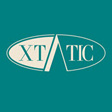Healthcare must evolve to meet the diverse needs of individual patients. Integrating Patient Reported Outcomes (PROs) is one of the most important steps to make when thinking about change.
PROs are direct reports from patients about their health, without interpretation by healthcare providers. These outcomes, collected through Patient Reported Outcome Measures (PROMs), will help you understand patients’ perspectives and improve their care.
PROs offer valuable insights into patients’ health status, quality of life, and the effects of diseases and treatments. They help healthcare professionals identify symptoms faster, make targeted interventions, and monitor drug therapy in real-world settings. This is especially important for precision medicine, where treatments are tailored to individual needs.
Despite their benefits, PROs are only sometimes used in practice. Using digital tools can improve the collection and analysis of PRO data and make it more reliable and actionable. This integration supports better clinical decisions and leads to more efficient and patient-centered healthcare.
This article explores the importance of PROs in modern healthcare, the role of software in enhancing PRO management, and the key features of effective PRO management software. We will also discuss integrating PROs into electronic health records (EHRs), their impact on patient-centered care, and the importance of regulatory compliance.
Finally, we will look at future trends in PRO management and how new technologies are set to improve patient care and clinical research.
What are patient-reported outcomes (PROs)
PROs are reports of a patient’s health condition directly from the patient, without any interpretation by a clinician or anyone else. These outcomes offer valuable insights into the patient’s health status, quality of life, and health-related quality. PROMs are tools used to collect such data and provide a standardized way to assess patient outcomes.
The importance of PROs in assessing patient health is something that you should be paying attention to. They generally give health care providers a more accurate understanding of a patient’s well-being. This helps tailor treatments to meet the specific needs of the patient and thus enhance the overall patient experience.
PROs play a key role in improving patients’ quality of life. They allow patients to express their experiences and the impact of their condition on daily activities. This approach is crucial in chronic disease management, where you are able to better understand the patients’ perspectives.
For example, in conditions like chronic obstructive pulmonary disease (COPD) and irritable bowel syndrome (IBS), PROs are critical. COPD patients can report symptoms like shortness of breath and fatigue, which might not be fully captured through clinical tests alone. Similarly, IBS patients can share information about their digestive symptoms and how these affect daily living, aiding in better management of the condition.
Incorporating PROs into routine clinical practice and research bridges the gap between clinical assessments and the patient’s actual experience. This integration leads to more personalized and effective healthcare interventions, which leads to improving clinical outcomes.
The importance of software solutions in PRO management
Software solutions are transforming patient reported outcomes collection and analysis. By using advanced technologies, these solutions allow for efficient and accurate data collection from patients and, therefore, boost the quality and usability of PRO data in clinical practice and research.
Electronic patient reported outcomes (ePROs) are a key part of this shift. ePRO systems let patients report their health status through digital platforms like smartphones and computers. This digital approach is more convenient for patients and ensures higher data accuracy. Studies show ePROs can reduce data entry errors by up to 50% compared to paper methods, thus greatly improving data integrity.
ePROs also boost patient engagement by making it easier for patients to consistently provide health information, which is crucial when it comes to monitoring chronic diseases. Additionally, ePRO systems can remind patients to complete surveys and questionnaires for timely and complete data collection. For example, a study found that ePROs increased patient completion rates by 25% compared to traditional methods.
Using software for PRO management in clinical practice offers many benefits. These solutions integrate patient-reported data into EHRs, which gives healthcare providers access to comprehensive patient information at the point of care. This integration supports better decision-making and personalized treatment plans, ultimately improving health outcomes and patient safety.
For instance, in a large healthcare system, using ePROs led to a significant reduction in hospital readmissions by enabling early interventions based on reported symptoms. Moreover, software solutions can alert healthcare providers to significant changes in a patient’s condition.
Integrating software solutions for PROs and ePROs into clinical workflows and research protocols can significantly improve medical outcomes and patient safety.
Key features of PRO management software
Effective PRO management software includes essential features to improve the collection, analysis, and use of patient-reported outcome data. These features ensure precise, reliable, and actionable insights into patients’ health.
Some of them include the following:
- Computerized Adaptive Testing (CAT): CAT adjusts the assessment based on each patient’s answers, making it more accurate and efficient. This reduces the number of questions and improves data precision.
- Self-Completed Questionnaires: Here, patients report their health directly through digital platforms like smartphones and tablets. This ensures data reflects the patient’s perspective and substantially improves response rates.
- Focus Groups: Focus groups provide qualitative insights by discussing patient experiences. This helps healthcare providers understand complex issues and develop targeted interventions.
- Customizable Reporting Tools: These tools transform raw data into meaningful information. Healthcare providers can tailor reports with charts and graphs, making it easier to interpret and use the data for decision-making.
- Data Visualization Capabilities: Graphical representations of data help identify patterns and trends. Effective visualization enhances understanding and retention of information to aid clinical decision-making.
- Item Response Theory (IRT): IRT improves measurement precision by modeling the relationship between individual responses and overall health. This supports CAT and ensures questions are relevant to each patient’s condition.
- Determining Responsiveness: Tools assess how sensitive PRO measures are to changes in health status. This ensures data can detect meaningful changes, support treatment evaluations, and bring along quality improvements.
- Precise Measures and Construct Validity: Precise measures accurately reflect the patient’s health, and construct validity ensures measures assess the intended health concepts. These features guarantee accurate and meaningful data for clinical decisions and research.
In conclusion, PRO management software features enhance the reliability and utility of patient-reported outcome data to support better patient care.
Integrating PRO management into EHR
EHRs centralize all patient health data. Adding PRO data gives healthcare providers a complete view of a patient’s health. This helps clinicians make better decisions and tailor treatments to individual needs.
For example, access to patient-reported data on symptoms, quality of life, and treatment side effects allows providers to adjust care plans effectively.
Improving patient-centered care
Including PRO data in EHRs ensures the patient’s voice is central to the care process. Studies show that patients who feel heard and valued are more likely to engage in their treatment plans and adhere to prescribed therapies thus improving their health outcomes.
For healthcare providers, integrating PRO management software into EHR systems streamlines workflows and reduces administrative burdens. Providers can access PRO data alongside other clinical information in one system and eliminate the need to consult multiple sources. This integration enhances efficiency and allows providers to spend more time on patient care rather than administrative tasks.
Automated alerts and reminders based on PRO data can also prompt timely interventions – a solution that improves patient management and reduces complications.
Impact on performance measurement and quality improvement
The systematic collection and analysis of PRO data enable healthcare organizations to monitor and evaluate the effectiveness of treatments and interventions. This data-driven approach supports continuous quality improvement initiatives and helps identify areas for enhancement and track progress over time.
Health research also benefits from integrating PROs into EHR systems. Researchers can access extensive patient-reported data that complements clinical data. It also provides a richer dataset for studies on treatment efficacy and patient experiences. This comprehensive data collection supports the health research efforts and leads to new insights and advancements in medical care.
Regulatory Compliance and PRO Management Software
PROs are crucial in modern healthcare, but their collection and reporting must comply with strict regulations. These regulations ensure data is accurate, reliable, and used ethically, which maintains patient trust and meets legal standards.
Healthcare organizations must follow specific guidelines and standards to meet these requirements. The National Institutes of Health (NIH) and the National Committee for Quality Assurance (NCQA) are key bodies providing these guidelines.
The NIH, through its PROMIS initiative, offers validated tools and frameworks for PRO measurement and ensures consistency and accuracy across clinical settings. Similarly, the NCQA sets standards for integrating PROs into quality improvement programs and helps providers systematically collect and use patient-reported data.
PRO management software helps healthcare providers and researchers meet compliance standards. These solutions ensure data is collected, stored, and reported according to regulations. For example, they offer secure data storage with encryption, audit trails for tracking data access and changes, and compliance with HIPAA and GDPR regulations. Automating many compliance tasks, PRO management software reduces the administrative burden on providers and aligns data collection processes with regulatory standards.
Patient engagement and PRO management tools
PRO software includes features like user-friendly interfaces, mobile app accessibility, and automated reminders. All of these make it easier for patients to report their own health data regularly. These tools ensure patients can provide their input conveniently, increase engagement and ensure compliance. Interactive surveys, instant feedback mechanisms, and educational resources help the patients involved understand the importance of their responses and how their input contributes to their treatment plan.
Regularly collecting PRO data and patient perspectives allows healthcare providers to identify potential issues early and intervene promptly. For example, if a patient reports worsening symptoms, the healthcare provider can adjust the treatment plan immediately. This proactive approach prevents complications and promotes the patient’s overall health.
Implementing PRO management software in clinical trials and data security
By using ePRO systems you enable real-time data capture, reduce errors and improve patient engagement. These digital tools make it easier for patients to report their health status, leading to more accurate and reliable data for clinical studies.
Patient safety is enhanced through continuous monitoring of symptoms and adverse events, which helps plan and implement timely interventions. For example, ePRO use in oncology trials improved adverse event reporting by enabling quicker responses.
Data security and privacy are critical in these systems. PRO software includes encryption, secure storage, and compliance with regulations like HIPAA and GDPR. Features such as audit trails and data anonymization protect sensitive patient information to ensure ethical data handling.
Researchers conducting clinical trials often find themselves without clear guidelines for recruiting patients, collecting data, and entering it into systems. This lack of direction extends to handling sensitive PRO data, which can be concerning. It’s worrying because researchers may feel personal and professional anxiety when faced with ethical dilemmas about prioritizing patient needs over trial requirements. Therefore, it’s important to develop comprehensive guidelines to support researchers in managing PRO data effectively and ethically throughout clinical trials.

Discover how we can help outsource Healthcare projects efficiently
Speak to an expert today, and see how our on-demand IT talent and augmented teams can efficiently deliver value at every step of your roadmap.

Customization and scalability of PRO management platforms
Each clinical setting and research project has unique needs, so tailored software becomes vital. A flexible platform helps both small practices and large-scale studies collect and use PRO data efficiently.
Customizable PRO software allows healthcare providers to design relevant surveys and questionnaires to ensure meaningful and actionable data. Researchers can modify data collection tools to fit study protocols and objectives by adding specific health indicators, and varied response scales. They can also integrate condition-specific patient-reported outcome measures (PROMs).
Scalable platforms are increasingly helpful for growing practices and large-scale studies. As a practice expands, the software must handle increasing data volumes without performance drops. Scalability ensures the platform can manage more data, support additional users, and integrate new features.
For large-scale research, scalable solutions allow consistent and efficient data collection across multiple sites. This opportunity supports long-term studies that may last several years.
Customization and scalability in PRO management platforms enable healthcare providers and researchers to effectively manage patient data and advance their medical research. These adaptable solutions meet the evolving needs of clinical practice and research.
Future Trends in Software Solutions for PRO Management
The field of patient reported outcomes management is set for significant advancements due to emerging technologies.
Here are the innovations that will enhance patient care and clinical research:
- AI and Machine Learning: The field of PR) management is set for significant advancements due to emerging technologies. These innovations will enhance patient care and clinical research, making data collection more efficient and actionable.
- Impact on Patient Care: AI-driven analysis of patient reported outcomes can alert healthcare providers to issues early and ensure timely interventions. This proactive approach improves the management of chronic conditions and overall patient care.
- Enhancements in Clinical Research: In clinical research, AI and machine learning streamline data analysis and let researchers focus on interpreting results. These technologies enhance the accuracy and efficiency of clinical trials, identifying trends that traditional methods might miss.
- Mobile Health Apps: Mobile health apps allow patients to report outcomes in real-time using smartphones. This ease of access improves patient engagement and provides continuous feedback, crucial for ongoing health monitoring.
- Remote Monitoring Tools: Wearable devices collect continuous health data. Integrating this data with PRO software offers a comprehensive view of a patient’s health, aiding in accurate and timely decision-making.
So, how will the future of patient care and research be transformed by emerging technologies in PRO management? AI, mobile health apps, and remote monitoring tools promise real-time, accurate insights and enhanced patient engagement. These advancements will revolutionize PRO management, leading to better health outcomes and groundbreaking medical research.

Deliver a world-class Healthcare project–with high-skilled, seamlessly integrated IT talent
Learn how from our consultants. We work with clients worldwide.
Conclusion
Imagine getting direct insights from patients about their general health and this helps you tailor treatments just for them. That’s what PROs do. With digital tools like electronic PROs (ePROs), data collection has become a breeze—reducing data entry errors by 50% and boosting patient participation by 25%.
PRO management software comes packed with smart features like Computerized Adaptive Testing, easy-to-use digital questionnaires, customizable reports, and data visualization. These tools ensure we get accurate, meaningful data that leads to better patient care. Plus, when PRO data is integrated with EHRs, healthcare providers get a full picture of a patient’s health, which enables quicker and more informed decisions.
The future looks even brighter with emerging technologies like AI, mobile health apps, and remote monitoring tools. These innovations provide real-time insights and keep patients engaged. For instance, hospitals using ePROs have seen a significant drop in readmissions, proving these tools can make a real difference.
In a nutshell, adopting software solutions for PRO management isn’t just a tech upgrade—it’s a leap toward more personalized, effective, and compassionate healthcare. By embracing these advanced tools, we can improve patient outcomes, support groundbreaking research, and move closer to a truly patient-centered healthcare system.
Sources
- Provider perspectives on the integration of patient-reported outcomes in an electronic health record
- The Advent Of Electronic Source Records In Clinical Trials
- Digitization of healthcare sector: A study on privacy and security concerns
- Capturing the patient voice: implementing patient-reported outcomes across the health system
- Integrating the use of patient-reported outcomes

















